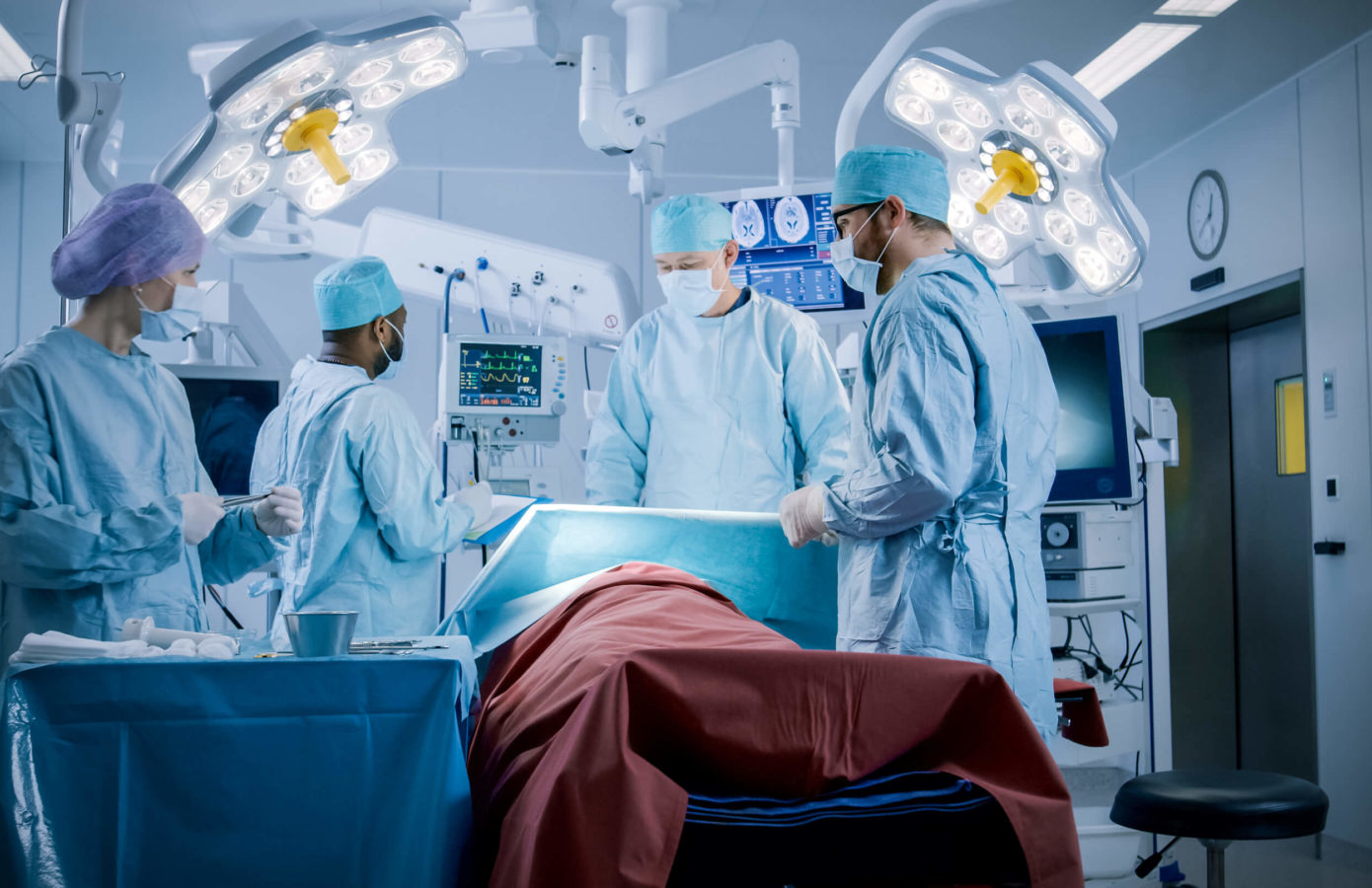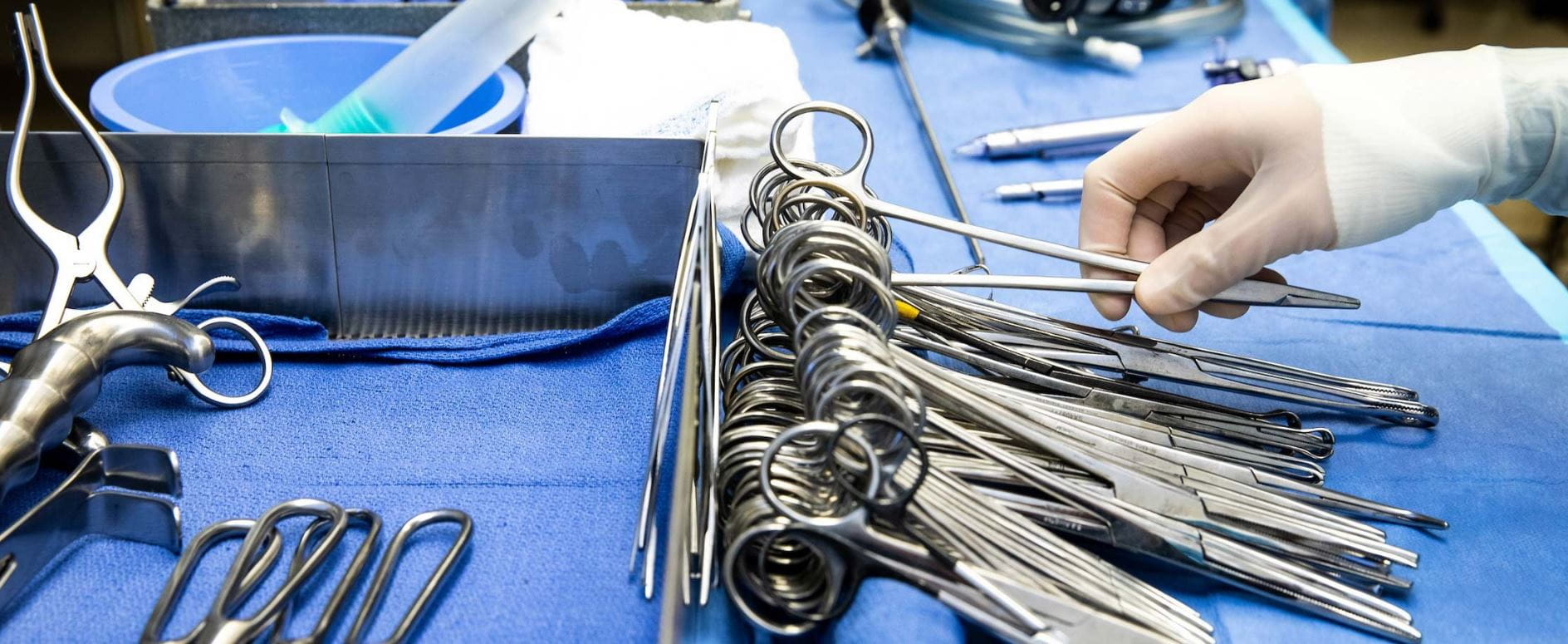Program Structure

Overview Of The Profession
Surgical Technologists are a crucial member of the surgical team. Surgical Technologists can work in a variety of settings: main operating rooms, labor and delivery, sterile processing departments, doctors offices, medical spas, surgery centers and many other places!
Surgical Technologists are usually the first ones in the operating rooms and the last ones out. Before a patient can be brought back into the operating room, it is the job of the Surgical Technologists to make sure the room is ready for the procedure. Ensuring the room is ready for the patient may include: moving equipment, gathering supplies, setting up the sterile field, passing medications, maintaining the sterile field, counting all their instruments and supplies and more.
Surgical Technologists must have a strong knowledge of anatomy, understanding of the the procedures and ability to adapt quickly to anticipate the surgeons needs.
Surgical Technologists must be able to take direction from surgeons but also must be able to function independently within their scope of practice. This often requires the use of critical thinking and problem-solving skills. Surgical Technologists must be able to keep their composure and function in high pressure situations.

Essential Skills & Abilities
Surgical Technologists must possess the following skills and abilities:
1. Physical/Motor Skills
- Stand and walk for extended periods of the time
- Perform physically strenuous tasks including raising patients in bed, maneuvering patients to and from tables/stretchers and carrying or maneuvering equipment
- Rise from a seated position without assistance
- Twist and bend at the waist
- Extend the hands and arms in any direction
- Hold, grasp and turn objects with the hands
- Reach up to six feet off the floor
2. Sensory Abilities
- Correctable near vision to 20 / 40 in at least one eye
- Correctable far vision to 20 / 40 in at least one eye
- Depth perception
- Distinguish shades of gray
- Hear audible speech (e.g. person-to-person communication) at 10 feet
- Hear speech when lips are not visible (e.g. wearing a surgical mask)
- Hear auditory alarms (e.g. patient monitors, fire alarms)
- Hear speech over a telephone
- Detect odors such as smoke, alcohol, noxious gasses
3. Communication Abilities
- Read documents in English
- Write legibly in English
- Speak fluently in English
- Understand speech in English
- Adapt verbal communication to patient/visitor limitations (e.g. hearing loss, pediatrics, diminished mental capacity)
4. Emotional and Behavior Skills
- Willingness to take directions
- Be self-directed and assertive
- Provide emotional support to others in distress
- Adapt to a changing environment
- Monitor own emotional state
- Manage frustration appropriately
- Accept responsibility for own errors or shortcomings
- Express emotions in a socially-acceptable manner
- Respect interpersonal boundaries
- Manage interpersonal and organizational conflicts in a respectful and professional manner
5. Intellectual Abilities
- Recall information with reasonable accuracy
- Recognize cause and effect relationships
- Anticipate/plan ahead for activities or situations
- Perform tasks in a logical and efficient sequence
- Prioritize competing tasks
- Problem solve when the solution is not self-evident
- Use visual/spatial processing in evaluating radiographic images
- Demonstrate attention to detail
- Evaluate own performance to determine corrective actions when appropriate

Assessment Of Essential Skills & Functions
Ascension St. Vincent Surgical Technology Program does not discriminate on the basis of disability as determined by the American with Disabilities Act (ADA). Physical/motor skills, sensory abilities, and communication skills are not assessed during the selection phase of the admissions process.
Emotional/behavioral skills and intellectual abilities are assessed during the selection phase of the admissions process as they relate to a candidate’s academic record, and ability to communicate effectively in English during a personal interview.
How difficult is it to get accepted for enrollment into the program?
Because of the limited number of student spaces in the program, the admissions process is competitive. For any applicant to be considered for acceptance they will need to demonstrate a history of successful academic performance as well as a personality that is compatible with both the academic and healthcare environment. Our selection panel evaluates many factors when selecting candidates for the program and has found that there is no one “model” for the ideal student. There is no one factor or attribute that can guarantee acceptance into the program.
Do all general education prerequisites need to be completed to apply to the program?
Applicants can apply without having completed all general education prerequisites. However, if an applicant is accepted, all general education pre-requisites must be completed prior enrolling in August.
If I have completed general education courses from another institution that are similar to courses in your program, do I have to complete those courses if I am accepted for enrollment?
Although courses may have similar names and subject matter, the program courses are presented with an emphasis on material that is relevant to the profession.
Can I work full-time while attending your program?
Although we cannot dictate what a student does outside of the program, past experiences have demonstrated that it is extremely difficult to successfully meet the requirements of the program while working a full time schedule. Some factors to consider beyond an individuals personal stamina and abilities are:
- Physical and mental demands of the job.
- Flexibility of work schedule
- Additional personal/family responsibilities
- Study time requirements outside of program hours
Many students do work part-time while in the program. The program faculty, while sympathetic and understanding of the situation, cannot lower the performance expectations of a student. Ultimately it is for each individual to honestly evaluate their abilities, both physical and academic and determine if after the commitment to the program hours and the hours to the job that there is enough time left to eat, sleep, study, travel, and for family while still meeting the requirements of the program.
Do you have alternative schedules such as evening or weekend only?
The program is Monday through Friday only. This allows the student to be exposed to all clinical experiences necessary to graduate.
Do you guarantee employment after graduation?
There are many employment opportunities available for new graduates. The long-term employment projections still show that there will be a critical need for healthcare professionals as our population continues to age. But please keep in mind that no academic program can guarantee employment after graduation.
Can I get scholarships or other financial assistance?
Ascension St. Vincent College of Health Professions does not participate in federal and state financial aid (FAFSA) thus Pell Grants, Stafford Loans, and other state and federal-sanctioned aid do not apply. Likewise the Ascension St. Vincent College does not offer scholarships. This is why we keep the program's tuition, materials and facility fees are very affordable. We will be happy to work with any third-party payer but it is the student's responsibility to secure such funding resources.
